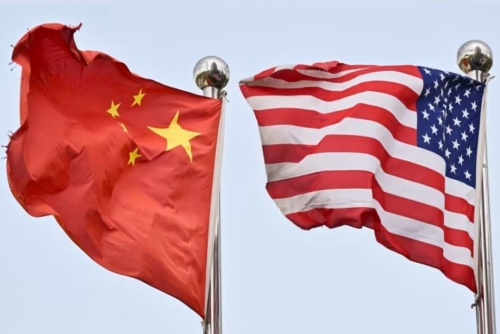Stocks rise on easing US-China trade tensions, cool US inflation
AFP | London
Email : editor@newsofbahrain.com
Stock markets edged higher yesterday as investors welcomed cooler US inflation data and a China-US agreement aimed at lowering trade tensions.
After two days of talks between US and Chinese negotiators in London, US President Donald Trump said: “Our deal with China is done”.
The United States and China slashed tit-for-tat tariffs after negotiations in Geneva last month, but tensions flared up again after Trump later accused Beijing of violating the pact reached in Switzerland.
The positive London talks provided some relief to markets.
“Wall Street’s three main indices rose as trading got underway in New York and Europe’s main indices were higher in afternoon deals.
Asian stock markets also won a lift on the China-US progress, with Hong Kong among the best performers.
As well as tariffs, a key issue in the discussions was China’s export of rare earths used in smartphones and electric vehicles, while Beijing was keen to see an easing of restrictions on its access to tech goods.
The talks came as World Bank downgraded its 2025 forecast for global economic growth to 2.3% -- from the 2.7% predicted in January -- citing trade tensions and policy uncertainty.
It also said the US economy would expand 1.4% this year, half of its 2024 growth.
Meanwhile data showed little impact of Trump’s tariffs on US consumer prices in May.
Between April and May, the consumer price index (CPI) rose 0.1 percent. Analysts had expected it to continue at the 0.2 rate it rose in April.
It also rose less than expected in the so-called core reading that excludes volatile food and energy prices.
“The key takeaway from the report is that both headline and core CPI were lower than expected on a month-over-month basis,” said Briefing.com analyst Patrick O’Hare.
“While these readings may not give a big boost to near-term rate cut expectations, they should also not cause the market to think that the next cut will be delayed,” he added.
Investors have worried that a tariff-driven surge in inflation could hinder the Federal Reserve from lowering interest rates to counter the slowdown in growth.
Investors now see a 57% chance the Fed, which has so not reduced rates since December, will cut rates in September.
Related Posts

